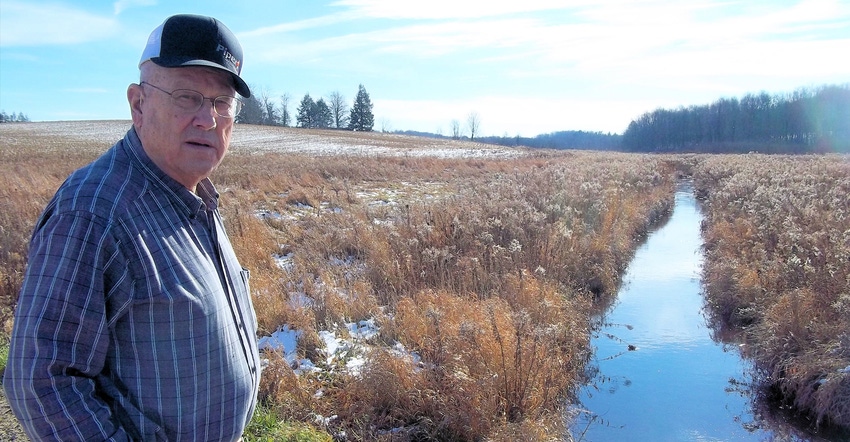December 14, 2017

By Lawrence Kogan
Editor’s note: The following is a clarification of two new lawsuits filed on behalf of Robert Brace, Waterford, Pa. He was one of the first U.S. farmers to be “busted” by EPA for seeking USDA authority to convert wetlands to croplands. It was the subject of Farmer wins round in 31-year wetland legal battle and January issue’s cover story.
The crux of Mr. Brace's defense is that EPA intentionally interrupted the activities in which he was engaged to convert his Murphy farm into productive croplands consistent with the "commenced conversion" designation. He had already received that designation from USDA’s Agricultural Stabilization and Conservation Service, based, in part, on technical determinations made by the Soil Conservation Service.
The Food Security Act of 1985 and accompanying regulations, as well as the USDA National Food Safety Manual and the ASCS Handbook at that time, had provided the conditions necessary for issuing "commenced conversions". These agencies had concluded those conditions had been met.
Unfortunately, the U.S. Fish and Wildlife Service, EPA and certain SCS (now Natural Resources Conservation Service) officials, along with environmental groups such as the National Wildlife Federation and Ducks Unlimited, opposed the determinations as anathema to wetlands protection.
Mr. Brace's "commenced conversion" application ended up being among the first "commenced conversion" determinations in the nation. That's why it was so opposed by the environmentalist community and those aligned with them within the incoming Bush '41 administration.
It’s clear to us that this constituency was involved in EPA's decision to "break" (interrupt) the commenced conversion activities in which Mr. Brace had been engaged during 1984-1990, as retroactively authorized by the 1988 ASCS "commenced conversion" determination.
EPA managed to interrupt that determination by framing their case against the Braces as one concerning merely an exemption from the application of the Clean Water Act Section 404 permitting obligation as a case concerning the application of the "normal farming activity" exemption and "maintenance of drainage ditch" exemption, which they later pleaded the Braces were unable to meet. EPA argued that these "commenced conversion" activities didn’t constitute "normal farming activities" under the CWA exemption. Ultimately, the Third Circuit Court of Appeals bought this argument and overruled the District Court.
Stretching the case
EPA effectively continued the 1990 exemption case by filing a new enforcement action in January 2017, alleging violation of the 1996 consent decree that Brace had previously executed with EPA regarding his Murphy farm. And EPA filed a second suit regarding his adjacent Marsh property.
These lawsuits were possible only because the agency had previously broken and disregarded the “commenced conversion” determinations made by USDA during September 1988 and February 1989 covering those properties. Had EPA honored USDA’s determinations as required, Brace could have completed those conversions by the end of 1994.
In other words, a “commenced conversion” designation was tantamount to a preliminary “prior converted cropland” determination. If and when completed, the properties would have been excluded from the CWA’s definition of “Waters of the United States” — and EPA federal jurisdiction.
EPA had carefully sought to avoid framing these cases as an exclusion from the application of the CWA altogether. Reason: No part of the Murphy farm would have constituted WOTUS under federal jurisdiction.
Our defense of these two cases is based on the applicability of the "exclusion" from WOTUS. Mr. Brace would have been entitled to that exclusion had EPA not intentionally and wrongly disrupted his commenced conversion activities which he had until Dec. 31, 1994 to complete.
Kogan is managing principal of Kogan Law Group, based in New York City, N.Y.
You May Also Like




